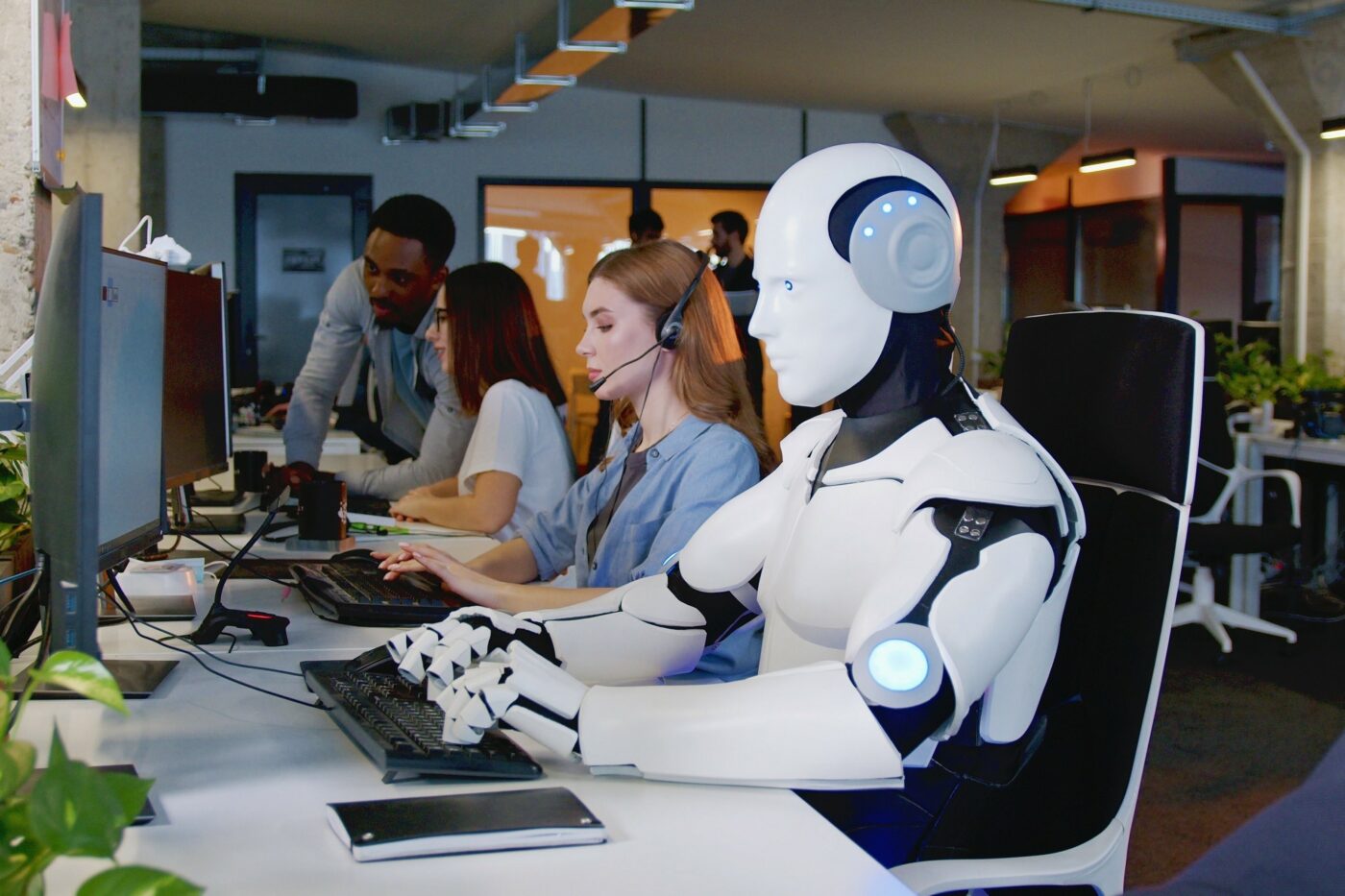Ameca is the world’s most advanced human-shaped robot, representing the forefront of human-robotics technology. If you ask Ameca whether AI or humanoid robots (and androids) plan to take over the world, turn against humanity, or subjugate humanity, they say “no.” If you ask what can be done to avert a disaster with joblessness created by AI and robotics, they answer that retraining and continuing education is the answer.
In other words, the jobs that will disappear can be replaced by new jobs. But to get those new jobs, you need training and education. That sounds like a reasonable solution, but this idea has a few monumental problems. First, I see homelessness increasing like we’ve never seen if all the jobs that can become automated do become automated.
This is not new. Since the start of the Industrial Revolution, I’m sure everyone has feared being replaced by machines. My father feared it because the introduction of a computer that could do what he does (only much faster) was a genuine threat.
He wasn’t wrong to be afraid. Many of the people in his section were let go because the software could do the work of several people. The people who were kept could quickly adapt to the technology. He was fortunate because he had been well-liked and was given a promotion to oversee much of his department. You could say that he “dodged a bullet,” but how easily it could have gone the other way?
While AI’s response to training and education certainly sounds like an intelligent answer, what about people who are not technologically savvy, like Baby Boomers and Generation X?
Everyday technology and computers, especially, came when these people were into adulthood. I know people in both generations who adapted easily, but I also know many who never got a smartphone or a computer.
Given this AI threat, consider that some Boomers will work to the grave because they cannot afford to retire. Companies hardly ever give pensions anymore. Many also keep employees part-time to forego providing benefits. These individuals worked their entire lives getting paid a low salary even as the price of everything rose, and their salaries didn’t keep pace. They never had enough money left over to save or invest.
While they cannot afford to stop working, many are employed in retail stores and other non-tech jobs threatened by automation. They are unlikely to be trained in the emerging high-tech fields without a technological inclination.
This brings me to my next point: Who is paying for the retraining and continuing education of all these people who are replaced?
Companies have continued to cut benefits and salaries over the past few decades. There is no likelihood that these greed-driven companies will want to train anyone over a certain age for high-tech jobs. They might feel these people won’t live long enough to get a return on their investment. Sadly, it will always come down to money over their fellow man.
According to some experts in the AI field, society should be braced for economic disparity, the likes of which we have never seen before. The wealth gap won’t be a gap; it will be a chasm as vast as the ocean. I’m not hearing this from fearmongers but from people in the computer sciences and tech fields. I have little reason to doubt them.
Over the past decade, the divide has grown exponentially between rich and poor people, leaving few in the middle class.
Imagine a world where functional robots could replace a common position – like a building janitor, for example. Robots don’t call in to work. If it isn’t functioning correctly, it is sent to be serviced and replaced by other robots. Robots are an easy sell – they are a purchased workforce, and maintenance is likely cheaper than paying a worker’s salary and benefits.
The thing is, what happens to people? I knew a person with Down Syndrome who worked as a janitor. This person worked hard and was paid the same salary and benefits as anyone else doing that job. They were good at their job, and it helped pay much of the rent at the time. That is not someone who would have been retrained in high-tech fields. What happens to a person like that?
SSI or SSD barely pay for most people to rent a room, much less anything else. Even with food stamps, medical assistance, and other programs, many people with disabilities cannot make ends meet each month and end up homeless.
This is not hard to understand. It’s straightforward to see why we should expect a surge in people phased out by automation and subsequently displaced.
A friend said, “I thought you’d be excited by all this technology. It’s the Star Trek future you always wanted.”
I wish I could be excited by it, but as it becomes a reality, so too is another reality becoming clear: If we are about to see the Star Trek future, it won’t be the universe with housing for all, universal salary and medical with Earth as the paradise of the galaxy. No, I’m horrified to realize that THIS Earth, this universe, is the evil Terran Empire! It’s the Mirror Universe (the one where Spock has a beard).
We are in a barbaric universe of hate, backstabbing, devaluing the weak or vulnerable, exploiting the land, and having no regard for living beings. It’s warlike and positively evil, and all that fabulous tech I waited on is tainted by greed.
I won’t use Alexa, Siri, or any of those voice-capturing interfaces to interact with my computer, regardless of how long I dream of saying, “Computer: Begin dictation; column for Invisible People.” The internet is full of danger, hackers, and horrible people trying to hurt you intentionally. They will use emerging tech to do it and get rich, while so many elderly, disabled, and families with children end up in the street as AI takes their jobs.











